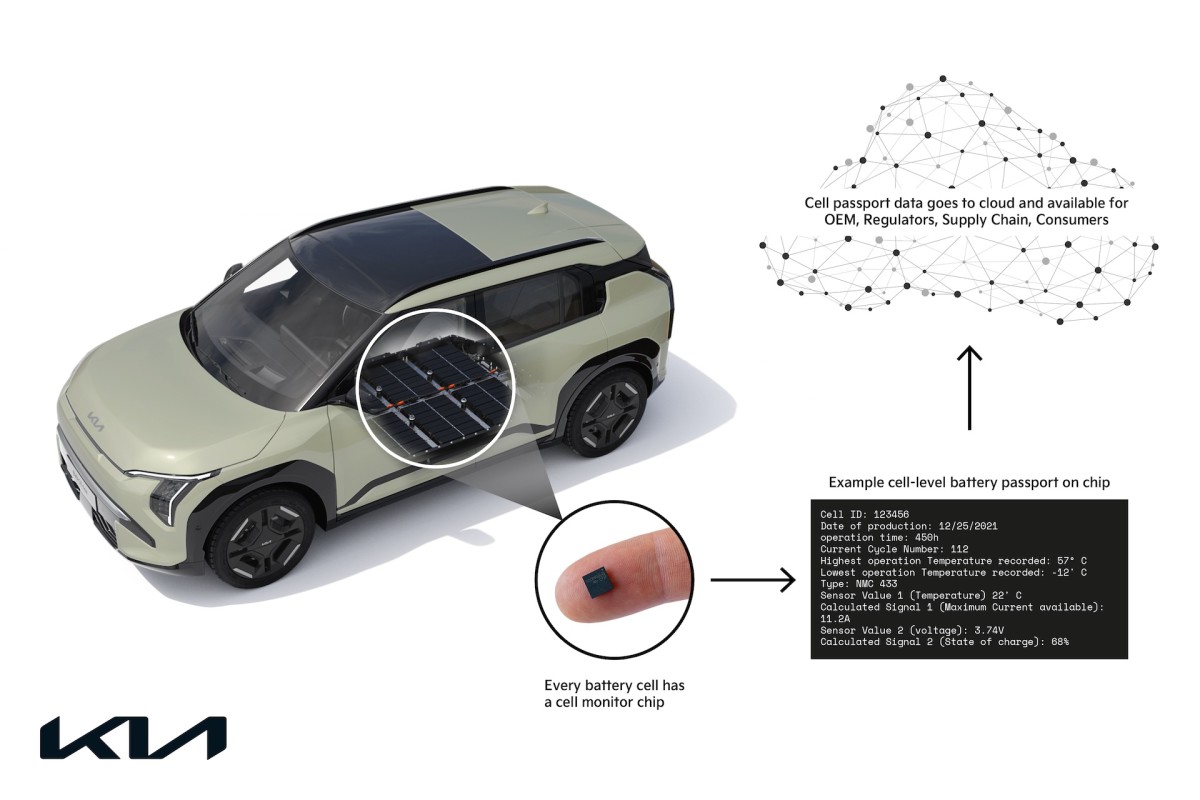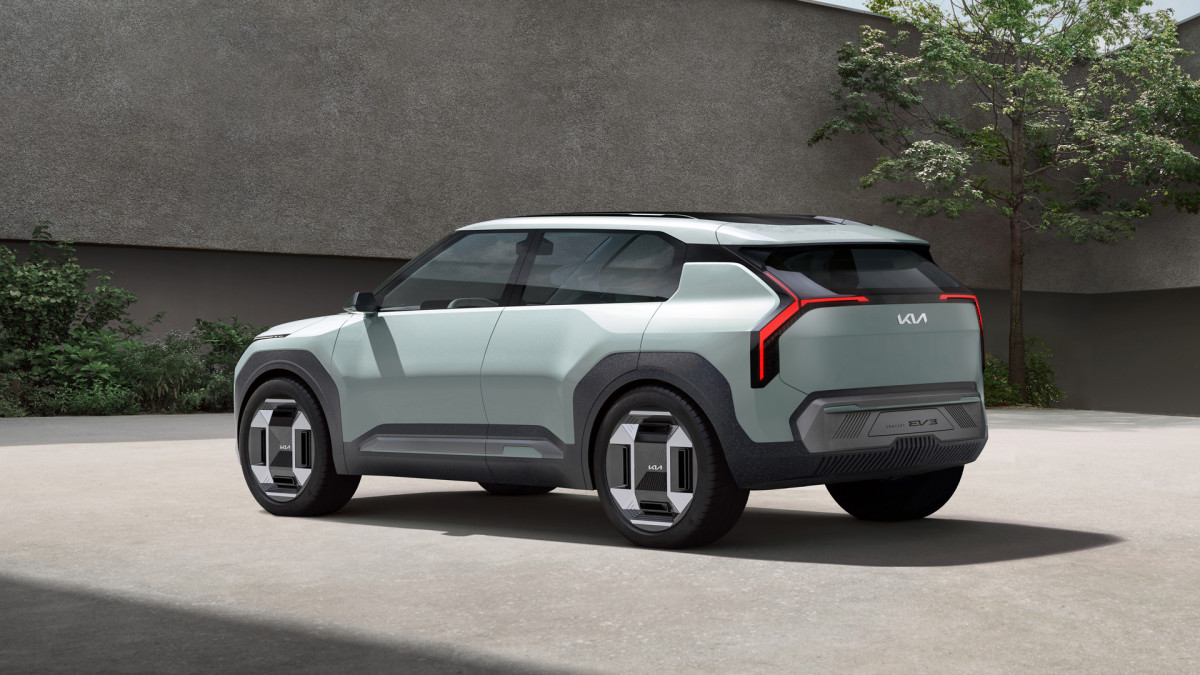- Battery-monitoring system checks individual cells for problems
- Kia says this allows for more targeted repairs, saving customers money
- European Union will require battery-health monitoring starting in 2027
Batteries To Get Health 'Passports'
Most of the value of an electric vehicle is tied up in its battery pack, so ensuring that pack lasts as long as the vehicle it's installed in is a concern for customers and regulators. That's why the European Union is mandating "battery passports"—essentially health records for batteries—for all hybrids and EVs sold in member countries by February 2027. Kia is the first automaker to start testing one of these monitoring systems.
Instead of monitoring health at the pack level, though, this system from supplier Dukosi looks at the individual battery cells that make up the pack. This allows for cell-specific repairs that are less costly than replacing larger modules or the pack itself. And it provides a clearer picture of overall battery health, allowing for more informed decisions about when a battery pack has reached the end of its useful life.
Real-Time Data Monitoring

Kia
The system is being tested on a Kia EV3, the small electric crossover the automaker launched in Europe in late 2024, and is expected to bring to the United States in 2026. Chips for each cell collect and transmit data in real time through infrastructure overseen by the Netherlands' Delft University of Technology. That data-sharing platform is part of the test as well; Kia hopes to make data from future production models available to customers, mechanics, and regulators at any time.
According to Kia, the system is capable of creating end-to-end traceability, and automatic updates after repairs, so a battery pack's health can be judged across its entire lifespan. That should help avoid nasty surprises for used EV shoppers, as well as waste from still-usable batteries being retired because their true condition is unknown. The latter is an important consideration for the overall climate impact of EVs.
Batteries Already Last A Long Time

The lifespan of EV batteries can vary based on several factors such as climate and the frequency and type of charging, but they're proving to be pretty a robust. A study from telematics company Geotab, based on from 10,000 EVs in Europe and North America, showed average degradation of 1.8% per year. At that rate, battery packs could last 20 years or more—perhaps longer than vehicles themselves.
And while there are no federal standards for battery-health monitoring or degradation, California is requiring new vehicles to maintain 80% of their electric range for 10 years or 150,000 miles starting with the 2030 model year. Manufacturers will also have to offer warranties guaranteeing that vehicles will maintain 75% of their battery capacity for eight years or 100,000 miles starting with the 2031 model year.
from Autoblog News https://ift.tt/PYFmhHz


0 Comments